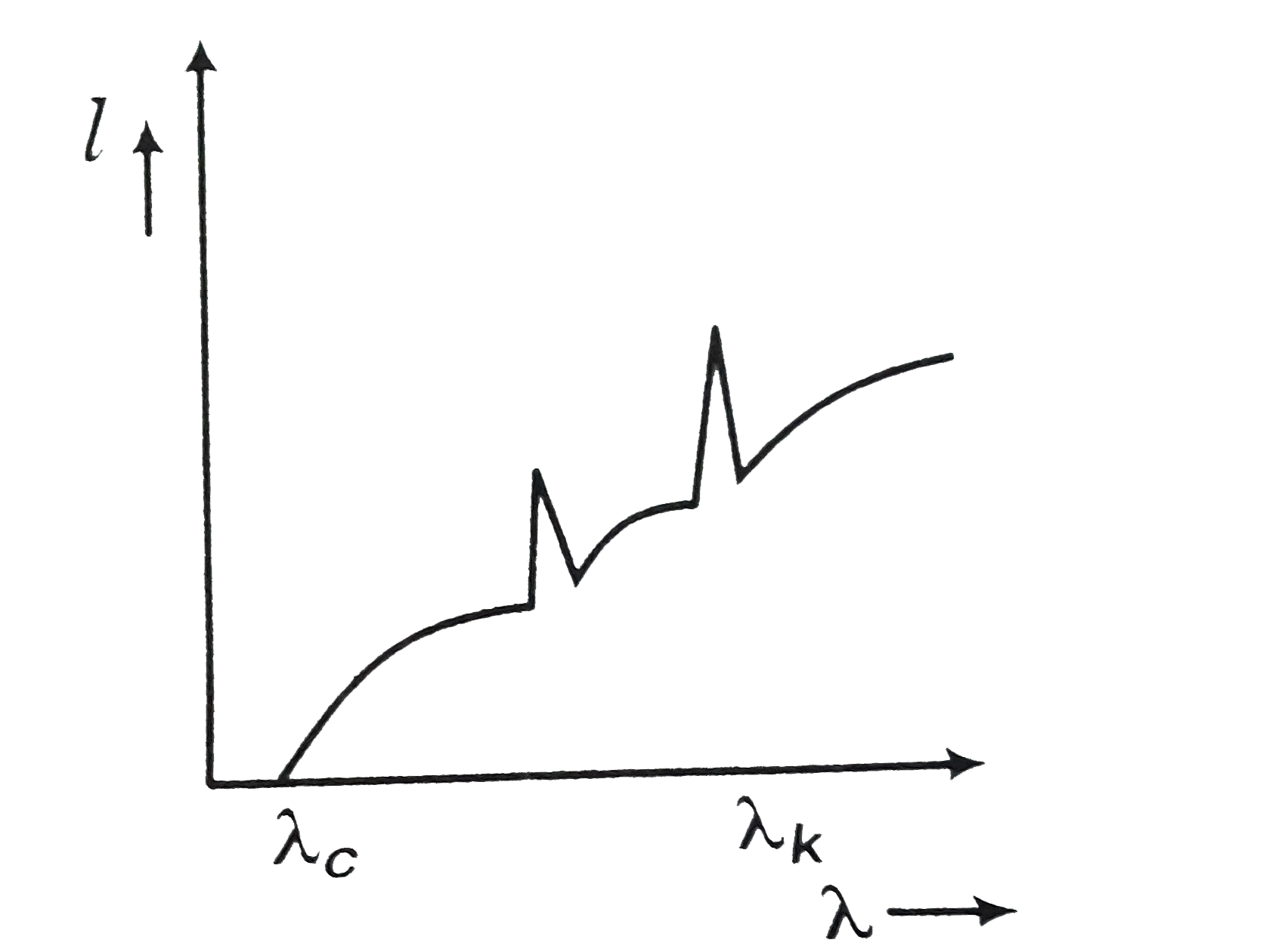Complete Solutions to Single correct answer type of chapter ATOMIC PHYSICS of Class 12 book with complete answers and questions
| Class 12 | PHYSICS |
| Chapter | ATOMIC PHYSICS |
| CENGAGE PHYSICS | Single correct answer type |
| Number Of Questions | 22 |
| Academic Year | 2023-24 |
The shorted wavelength of X- rays emitted from an X- rays tube depends on
View SolutionIf element with particle quantum number `ngt4` were not allowed in nature , the number of possible element would be
View SolutionConsider the spectral line resulting from the transition `n = 2 rarr n = 1 ` in the atoms and ions given . The shortest wavelength is produced by
View SolutionThe X-ray beam coming from an X-ray tube
View SolutionThe `K_(alpha)` X-ray emission line of lungsten accurs at `lambda = 0.021 nm`. What is the energy difference between `K`and `L` levels in the atom?
View SolutionAs per Bohr model , the minimum energy (in eV) required to remove electron from the ground state of doubly ioinized `Li` alom `(Z = 3)` is
View SolutionX-ray are produced in an X-ray tube operating at a given accelerating voltage. The wavelength of the continuous X-ray has values from.
(a) `0 to oo`
(b) `lambda_(min) to oo, where lambda_(min) gt 0`
(c ) 0 to `lambda_(max), where lambda_(max) ltoo`
(d) `lambda_(min) ot lambda_(max)`, where `0ltlambda(min) lt lambda_(max) lt oo`
View SolutionImagine an atom made up of proton and a hypothetical particle of double the mass of the electron but havign the same charge as the electron. Apply the Bhor atom model and consider all possible transitions of this hypothetical particle to the first excited level. The longest wavelength photon that will be emitted has wavelength `lambda` (given in terms of the Rydberg constant R for the hydrogen atom) equal to (a) `9//5 R` (b) `36/5R` (c ) `18//5R` (d) `4//R`
View SolutionThe electron in a hydrogen atom makes a transition from an excited state to the ground state. Which of the following statements is true?
View SolutionElectrons with energy 80 ke V are incident on the tungsten
target of on X-ray tube. K-shell electrons of tungsten have 72.5 ke V energy.
X-ray emitted by the tube contain only
(a) a continuous X-ray spectrum (Bremsstrahlung) with a minimum wavelength of
`~~ 0.155Å`. (b) a continuos X-ray spectrum (Bremsstrahlung) with all wavelegths
(c ) the characteristic X-ray spectrum of tungsten
(d) a continuous X-ray spectrum (Bremsstrahlung) witha minimum wavelength of
`~~ 0.155 Å` and the characteristic X-ray spectrum of tungsten.
View SolutionThe transition from the state `n = 4 " to " n = 3` in a hydrogen like atom results in ultraviolet radiation Infrared radiation will be obtained in the transition from
View SolutionThe intensity of X-rays from a coolidge tube is plotted against wavelength as shown in the figure . The minimum wavelegth found is `lambda_(c)` and the wavelength of the `K_(alpha)` line is `lambda_(k)`. As the accelerating voltage is increased

View SolutionThe potential difference applied to an X-ray tube is 5k V and the current through it is 3.2 mA. Then, the number of electrons striking the target per second is __________.
View SolutionA hydrogen atom and a `Li^(++)` ion are both in the second excited state. If `l_H` and `l_Li` are the respective electronic angular momenta and `E_H` and `E_Li` their respective energies, then
View SolutionThe electirc potential between a proton and an electron is given by `V = V_0 ln (r /r_0)` , where r_0 is a constant. Assuming Bhor model to be applicable, write variation of `r_n` with n, being the principal quantum number. (a) `r_n prop n` (b) `r_n prop (1)/(n)` (c ) `r_n^2` (d)`r_n prop (1)/(n^2)`
View SolutionIf the atom`(_100)Fm^(257)` follows the Bohr model the radius of `_(100)Fm^(257)` is `n` time the Bohr radius , then find `n` .
View Solution`K_alpha` wavelength emitted by an atom of atomic number Z=11 is `lambda`. Find the atomic number for an atom that emits `K_alpha` radiation with wavelength `4lambda`.
View SolutionA photon collides with a stationary hydrogen atom in ground state inelastically. Energy of the colliding photon is 10.2 eV. After a time interval of the order of micro second another photon collides with same hydrogen atom inelastically with an energy of 15eV. What wil be observed by the detector?
(a) 2 photons of energy 10.2 eV
(b) 2 photons of energy 1.4 eV
(c ) One photon of energy 10.2 eV and an electron of energy 1.4 eV
(d) One photon of energy 10.2 eV and another photon of energy 1.4 eV
View SolutionThe largest wavelength in the ultraviolet region of the hydrogen spectrum is `122nm`. The smallest wavelength in the infrared region of the hydrogen spectrum (to the nearest interger) is (a) `802nm` (b) `823nm`
(c ) `1882nm` (d) `1648nm`.
View SolutionElectrons of mass m with de-Broglie wavelength `lambda` fall on the target in an X-ray tube. The cut-off wavelength `(lambda_(0))` of the emitted X-ray is
View SolutionWhich one of the following statement is `WRONG` in the context of X- rays generated from X- rays tube ?
View SolutionThe wavelength of the first spectral line in the Balmer series of hydrogen atom is `6561 A^(@)` . The wavelength of the second spectral line in the Balmer series of singly - ionized helium atom is
View Solution
Single correct answer type questions and complete solutions for chapter ATOMIC PHYSICS of CENGAGE PHYSICS (ENGLISH) of Class 12